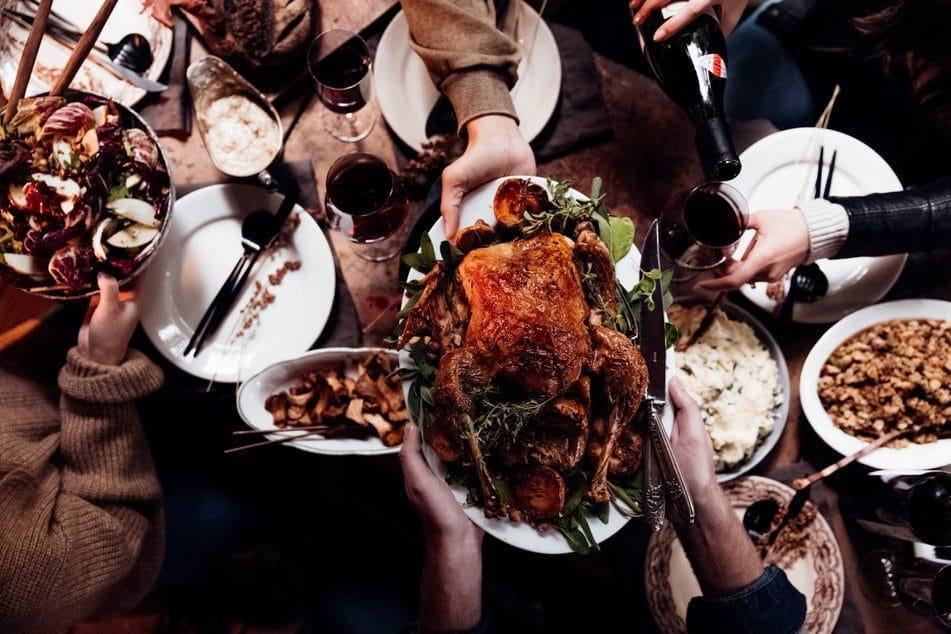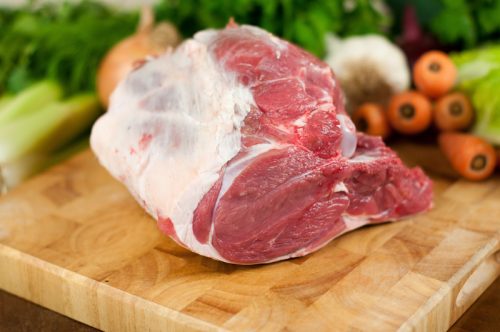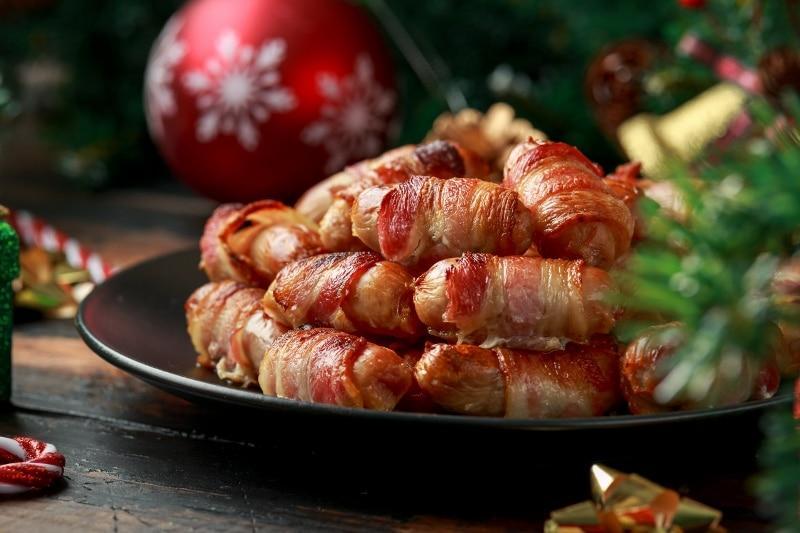Christmas is a time for giving, but not taking the right precautions when preparing, cooking, and reheating your food around the festive season can lead to the unwanted gift of food poisoning. Here, Gary Lyons, Managing Director at Plastic Box Shop, shares his tips for handling your Christmas food and leftovers in a safe way.
While you may think you’re always careful enough to cook, store, and reheat your Christmas leftovers properly, it may not be the case. In fact, statistics show that there is an estimated one million cases of food poisoning in the UK each year, meaning many of us aren’t taking the necessary measures to protect ourselves from harmful bacteria (Food.gov).
Whether you’re unsure of the best place to store your Christmas bird, or you struggle to know when you can and can’t reheat something, it’s important that you are clear on these things to reduce your chances of illness. Here, I will be sharing my top tips for handling your food safely and responsibly this festive season.
What causes food poisoning?
A good proportion of Brits will have had food poisoning at least once in their lives, but many people don’t know what harmful bacteria causes food poisoning. There are five main ones:
- Campylobacter: This is the bacteria that’s responsible for most of the food poisoning cases in the UK and is found in the gut of poultry, particularly chicken.
- Salmonella: This bacteria lives in the gut of many farm animals, which means your raw eggs, poultry, and even milk can be affected by it. You can also pass these bacteria from person to person by sharing drinks or using contaminated utensils.
- Listeria: Listeria bacteria contaminates many chilled, ready-made foods such as soft cheese, smoked salmon, and cooked sliced meats.
- E. coli: Harmful strains of E. coli can be found in raw or undercooked meat and unpasteurised milk.
- Shigella: Bagged salads or vegetables that are washed with infected water can be contaminated with Shigella.
Many of the foods that can be contaminated will be used in your Christmas dinner and are typically enjoyed over the festive season, so taking precautions is imperative.
Organise your kitchen storage
Many shoppers love getting to the supermarket early and stockpiling their Christmas food, but doing so can mean you’re left with mounds of tins, jars, vegetables, and sides to fit into your kitchen. And, while it can be tempting to stuff everything into your cupboards and fridge drawers and forget about them, incorrect storage can increase the likelihood of harmful bacteria growing on your food, making you more susceptible to food poisoning.
So, before you head to the shops, it can help to get your kitchen in order. Your kitchen cabinets are likely to be packed full of your everyday essentials so, add in your gravy granules and jars of cranberry sauces for Christmas, and you’re likely to be tight on space. This’ll be a good opportunity to go through your cupboards and throw anything out that’s past its use by date, and to transfer anything already opened like cereal into plastic containers. This’ll maximise the space you have and reduce your chances of reaching for anything that’s out of date.
Your freezer will be your saviour for keeping vegetables, Yorkshire puddings, and your Christmas bird well preserved until the big day, so making sure your freezer is at the optimum temperature of -18°C will help to keep your food fresh until the big day. I’d also recommend giving your fridge an overhaul, throwing away anything that’s out of date and placing anything loose into stackable air-tight containers that will keep your food fresher for longer and take up less space. Your fridge temperature should be 4°C to reduce the risk of your food going off.
Store your food correctly
Once you’ve organised everything, it’s time to start filling your cabinets and fridge freezers with your Christmas goods. Depending on when you purchase your turkey it’ll need to go in the fridge or freezer: raw turkey should only be kept in the fridge 1–2 days, while it can be kept in the freezer up to 6 months before. Check out our detailed guide for freezing and defrosting your turkey on the product FAQ tab!
When it comes to your vegetables, it’s worth noting that some vegetables such as potatoes, sprouts, and cabbages can be stored outside of the fridge. Either place these on a vegetable rack or in a sealed plastic container in your garage if the temperature is less than 5°C. If you plan to serve plenty of green, leafy vegetables, these will need to go inside the vegetable drawer in your fridge.
Cheeseboards are a popular choice at Christmas, but cheese can pick up strong flavours from other items inside your fridge, so they’re best off in an air-tight plastic container that’s kept well away from any raw foods. In fact, you should make sure that both raw and cooked foods are kept completely separate, with cooked food placed on the shelves above raw foods.
Safely store and reheat your leftovers
If you find yourself with leftovers from your Christmas dinner, it’s important that you leave them to cool properly and put them in the fridge within 2 hours of cooking to minimise bacteria growth. Leaving them out all afternoon, especially your turkey, can mean your leftovers aren’t safe to eat later. Any leftovers from December 25th should be eaten within three days.
If cold turkey sandwiches aren’t your thing, make sure you reheat your meat carefully. Before you do this, I’d recommend slicing your bird and only heating the pieces you’ll eat, as you will only be able to reheat turkey once. The rest can be kept in airtight plastic food containers in the fridge until you want to enjoy these.
You should then set your oven to 180°C and lay your turkey on a baking tray. To keep it as flavoursome as possible, wrap your turkey in tin foil to keep any juices contained and add a dollop of butter over the meat. You should cook for around 30–35 minutes or until piping hot through the middle.
Avoid food-related illnesses this festive season with my top four tips, and make sure it’s a Christmas to remember for all the right reasons!




